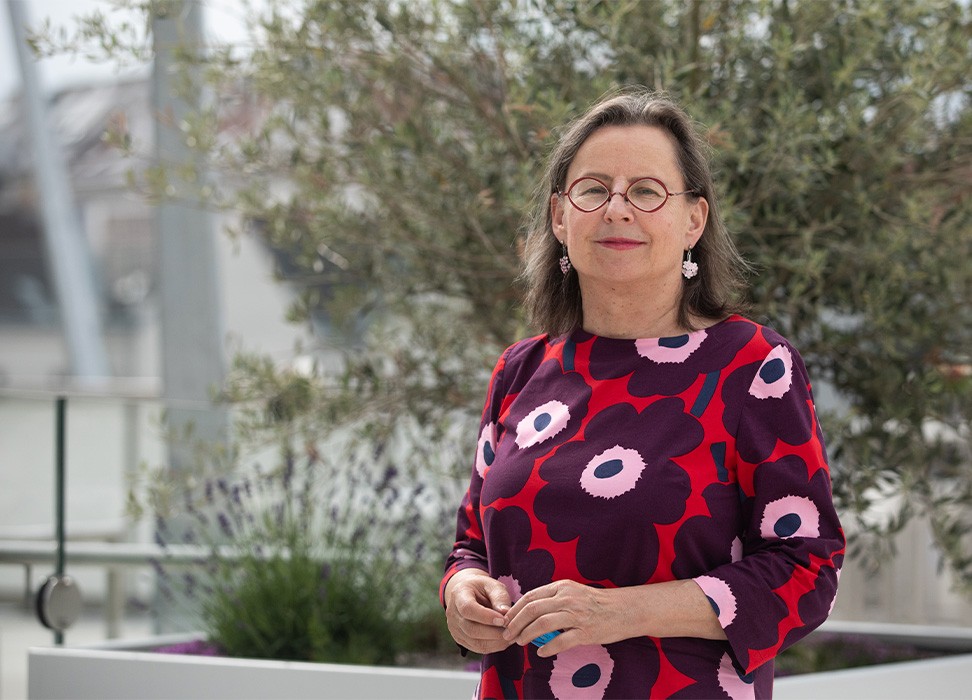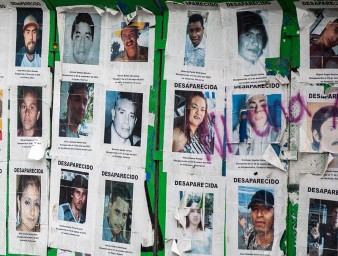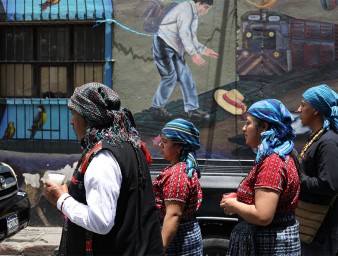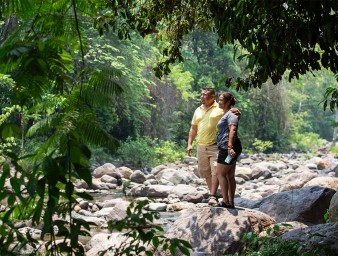“Don’t give in:” Veteran rights activist urges younger generations
09 June 2023

Women’s rights activist Rosa Logar recalls the heady days of the World Conference on Human Rights of 1993.
Delegates from every continent descended on Vienna to demand that women's rights be recognized as human rights. Global petitions calling for human rights for women circulated around a packed plenary hall. Women took the podium to give testimony on rights abuses, from domestic violence to political persecution to violations of economic rights.
“Women in general were not silent, but they were silenced because they were not at the table,” said Logar, who participated at the historic conference representing her native Austria. “There were more than a thousand women from all continents present at the conference. I think they really had a kind of wake-up effect on the delegates because they said: ‘Hey, we are here. You have to listen to us. Our rights are not regarded.’ ”
For Logar, who has spent decades campaigning against domestic violence towards women and co-founded her country’s first shelter for victims of domestic abuse, the Vienna Declaration and Programme of Action led to a rethinking of women’s rights as human rights.
The conference, which embodied worldwide consensus, significantly expanded the international human rights agenda to include gender-specific violations. Among other things, the Vienna Declaration recognized that the elimination of violence against women in public and private life is a human rights obligation.
“It was a huge step,” Logar said. “The idea of human rights was broadened, and it became clear that it has to apply to the whole of humanity, women and men.”
Thirty years after the Vienna breakthough, however, Logar warned that rollbacks in human rights are eroding progress in the rights of women. Speaking during a UN Human Rights event to commemorate the 30th anniversary of the Vienna Declaration in Vienna, Austria, Logar called for renewed energy to continue the fight for equality and justice.
“Unfortunately, we are facing setbacks in the area of women's human rights, but also of human rights in general. This very important idea that every person has rights from birth, and is equal, is being questioned again,” she said. “Women are far from having achieved everything. Now the danger is that it will be taken away from them, but they will not let that happen. Women are protesting against having their rights taken back.”
Tribunal on Women’s Rights
During the Vienna conference, a Global Tribunal on Violations of Women’s Human Rights was organized by civil society groups. The Tribunal offered women from different countries a chance to highlight their daily experiences of abuse, including sexual violence in armed conflict, and the impact of discrimination on health, housing, and poverty.
“They were talking on behalf of the millions of women who suffer every day,” Logar said.
Logar remembers a woman from Pakistan who travelled from her small village to Vienna to speak out about how she had been severely burned by her husband’s family.
“I was so moved and so impressed by her story. And she was one of many who dared to speak out, to speak up, and to demand that this would stop.”
Istanbul Convention
In 1978, Logar co-founded the first Austrian women's shelter in Vienna. For more than 40 years she has been a leading voice for the protection against violence towards women. As a member of the Council of Europe Committee on Preventing and Combating Violence against Women and Domestic Violence, she contributed to several international reports and treaties, including the Istanbul Convention, a landmark agreement aimed at preventing violence against women and domestic violence.
Many of the human rights defenders and women’s rights activists who took part in the special events to mark the 30th anniversary of the Vienna Declaration were not born when Logar attended the conference.
Logar, who co-founded two years ago an Austrian section of Women’s International League for Peace and Freedom, said that seeing younger generations taking up the fight for human rights gives her a lot of hope for the future.
“This hope gives us the energy, even in difficult situations, to keep going, to not accept, even if it looks as if we can't stop it. We need to do everything we can.”
To succeed, Logar called on women's and human rights organizations to build alliances across all sectors.
“We have to link the work for human rights with the work to save the environment and against racism,” she said. “We have to link it with the concerns we have on militarism; the exorbitant rise of military expenditure leads to a situation in which the world is over-armed and peace is underfunded, as former UN Secretary-General Ban Ki-moon stated. We have to move the money from war to peace, this is vital for the people and the planet!”
So, does she have any word of advice for younger generations of women’s rights activists?
“It's not easy to do this job because the patriarchy is fighting back,” she said. “Don't give in, keep holding together, because solidarity is the most important element for keeping us strong.”



